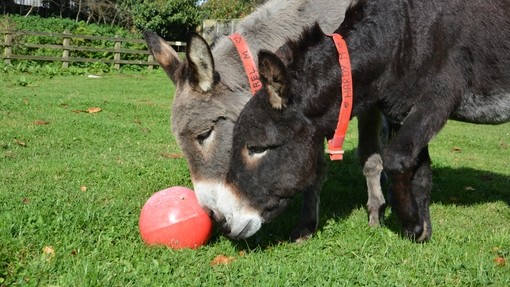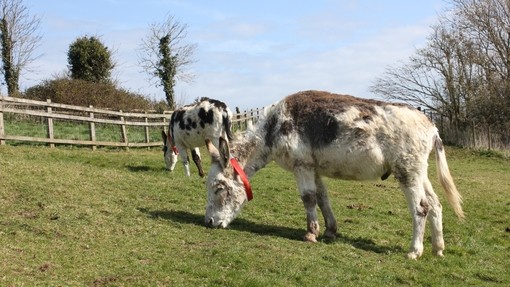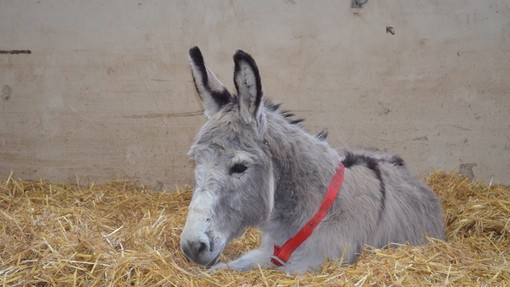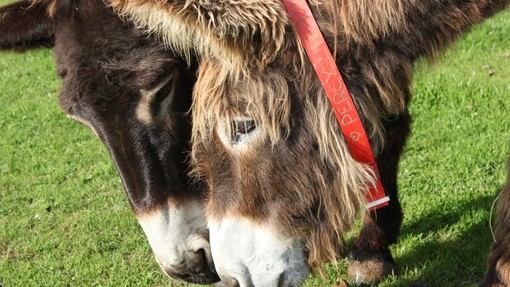Daily
- Twice a day, watch your donkey closely to make sure it is displaying normal behaviour and not showing signs of injury or illness.
- Twice a day, check the amount your donkey is eating and drinking. Also check the consistency and frequency of any droppings.
- Remove rugs and check your donkey for rubs or sores.
- Groom your donkey if its coat is dry and pick out its feet.
- Apply insect repellent according to the time of year.
- Give enough high-fibre, low-energy food (such as barley straw) to satisfy your donkey’s natural appetite and maintain a healthy body condition.
- Extra feed may be required depending on your donkey’s individual needs or the time of year.
- If the weather is suitable, turn your donkey out in a paddock to graze. Consider your donkey’s health and stage of life before turning out to graze; it may not be appropriate to allow grazing. It is also important to check the availability of shelter, before they are allowed to graze.
- Organise daily exercise to keep your donkey fit and healthy. Provide ridden, driven or walking exercise if turnout is not available.
- Make sure clean, fresh water is easily available. Check buckets and troughs are clean and working properly.
- Muck-out stables and remove droppings from fields and yards.
- Give your donkey toys or non-poisonous bark-covered logs for extra mental stimulation.
Weekly
- Check all perimeter fences for damage. Make sure fencing is well-maintained and secure.
- Check for poisonous plants. Correctly remove and destroy any that you find.
- Disinfect stable floors and remove excess dust from stables and shelters.
Monthly
Record observations in a monthly diary or on a quality of life record sheet. Noting down health measurements (such as temperature and respiratory rate) and behaviour will help you to understand what is normal for your donkey. By doing this, you can quickly spot potential health problems or changes that need investigating. See our Monitoring your donkey’s quality of life for more information.
- Arrange farrier visits every 6-10 weeks.
- Record your donkey’s body condition score and heart girth measurement. Use these with the weight estimator tool, or a donkey-specific weigh tape, to monitor weight gain or loss.
- Take your donkey’s temperature and respiratory rate.
Yearly
Put reminders on your calendar so you can keep track of what is needed and when.
- Carry out a faecal worm egg count test at least twice yearly to check for worms. The results of this test will help you decide whether you need to give a chemical worming treatment. You should administer wormers as advised by your vet or by a person qualified to give advice.
- Arrange a visit from a vet or a qualified equine dental technician to check your donkey’s teeth. Depending on the condition of your donkey’s teeth, you may be told to arrange more frequent dental checks.
- Organise a vet check and arrange for your donkey to have any appropriate vaccination boosters.
- Check that your donkey’s stable is in good condition. Make sure the water supply and electrics are in safe working order.




